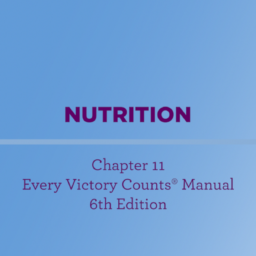Dietary supplements are vitamins, minerals, herbs/botanicals, amino acids and other substances that can be ingested to add nutrients to a diet. According to the Office of Dietary Supplements at the National Institutes of Health (NIH), approximately one third of Americans take one or more supplements every day. And yet, despite their widespread use, an abundance of misinformation makes it difficult to determine whether to include supplements in your diet, especially as someone living with Parkinson’s.
Here are some popular myths surrounding supplements and Parkinson’s:
Myth #1. This supplement will cure my Parkinson’s!
Fact: We’d all love a magic bullet. And while great strides are being made in the understanding and treatment of Parkinson’s, there is currently no cure.
Myth #2. There is no benefit in taking supplements.
Fact: Exaggerated claims notwithstanding, scientific evidence indicates that some supplements can play a role in supporting overall health. Good examples are calcium and vitamin D, which have been shown to help keep bones strong and healthy. That said, many of the claims about Parkinson’s-specific supplements require more rigorous research.
Myth #3. I can take this supplement instead of my medications.
Fact: Unlike medicines, supplements are not intended to prevent, diagnose, treat or cure diseases and should never replace the meals or medicines that are necessary for your health.
Myth #4. In terms of quality, all supplements are created equal.
Fact: Partly due to inadequate regulation, the quality of dietary supplements varies considerably. There is no guarantee that a supplement will be safe or will do what it claims it might. If you plan to use supplements, your best option is to limit use to products that have been tested and certified by a third-party organization. A quality seal from U.S. Pharmacopeia, NSF International or Consumer Lab can at least provide reassurance that ingredients meet minimum quality standards.
Myth #5. My doctor doesn’t need to know what supplements I take.
Fact: Unlike medications, dietary supplements are not required to undergo safety or effectiveness testing before being marketed to consumers. It often surprises people to learn that supplements can (and sometimes do) cause harmful side effects. They can also interfere with the effectiveness of conventional medications, which is why it’s important to discuss all dietary supplements you are taking with your healthcare provider and wellness team.
For example, people with Parkinson’s may want to take advantage of the antioxidant properties touted by supplements like vitamin E, omega-3 fatty acids and coenzyme (CoQ10). However, in addition to the potential benefits, vitamin E and omega-3 fatty acids may increase the risk of bleeding while coenzyme (CoQ10) may increase blood clotting. These are important risks for people to be aware of, particularly anyone who takes a blood thinner such as warfarin or aspirin, or who is at risk for falling.
Take Control of Your Parkinson’s Treatment
There is no doubt that nutrition is an important factor in living well with Parkinson’s. But when it comes to nutritional supplements, involving your healthcare provider and wellness team in your decisions will help you get the most benefit to live well today.
Our Every Victory Counts® manual gives people living with Parkinson’s, their care partners and their family members the tools they need to take control of their own Parkinson’s treatment through a proactive approach to self-care.
It’s jam-packed with up-to-date information about everything Parkinson’s, plus an expanded worksheets and resources section to help you put what you’ve learned into action. Color coding and engaging graphics help guide you through the written material and point you to complementary videos, podcasts and other materials on the Every Victory Counts companion website. And, it is still free of charge thanks to the generosity of our sponsors.
Request your copy of the new Every Victory Counts manual by clicking the button below.

















